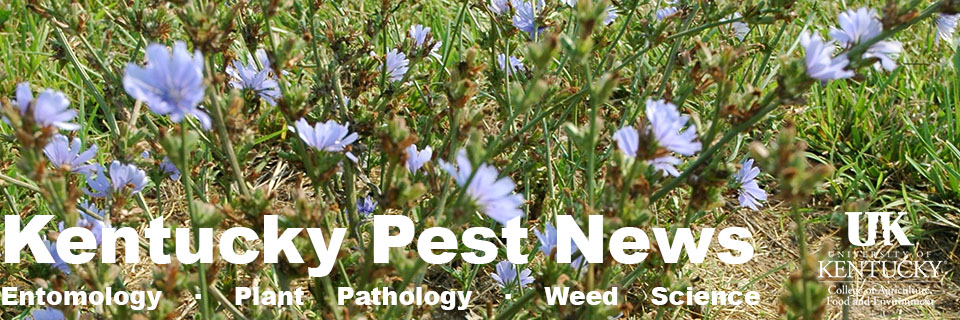This past week, the Kentucky Department of Agriculture (KDA)launched online testing for commercial pesticide applicators. In the past, people wanting to be licensed as commercial applicators must register and go to testing locations to be tested. Now applicators have a…
Blog Archives
Seventh Annual National Pesticide Safety Education Month – February 2024
February is National Pesticide Safety Education month. This is a time to carefully examine current best safety practices with pesticide use. Pesticides are key tools used to manage a diverse group of pests, diseases, and weeds. Pesticide safety is just…
EPA Seeks Comments on Paraquat Review Decision
The Environmental Protection Agency (EPA) has completed the Paraquat Interim Registration Review Decision (Paraquat ID). The Paraquat ID completed portions of EPA’s analysis of paraquat’s risks and benefits and determined that certain mitigation measures were necessary for paraquat to meet…
EPA Seeking Public Comment on Two Issues
Scientific Integrity On January 24, the Environmental Protection Agency (EPA) released draft updates to its Scientific Integrity policy for public comment. The updates would include adopting a new Federal definition of scientific integrity and improving the culture of scientific integrity…
EPA Issues Advisory on Pesticides by Beekeepers to Control Varroa Mite
Last week, the Environmental Protection Agency (EPA) issued an advisory to clarify what pesticide products and active ingredients are registered to control Varroa mites (Varroa destructor) in beehives and how it views the use of unregistered products to treat beehives.…
New Payment Deadline for Pesticide Licensing!
While we have just completed the first year under the new recertification rules for pesticide licenses, there is one new deadline for relicensing that comes up at the end of this month. The new regulations have shortened the grace period…
EPA Announces Proposed Restrictions on Fungicide Chlorothalonil
The U.S. Environmental Protection Agency (EPA) has proposed measures to reduce the hazard of the fungicidal active ingredient, chlorothalonil, to sensitive species in the environment, as well as to humans exposed during application, dietary exposure, and potentially other means of…
Proper Pesticide Storage Saves Money
With the outdoor growing season winding done, applicators are storing pesticides until next year. Storing these pesticides properly helps to protect your investment, as well as protect other persons and the environment. The amount of pesticides stored varies considerably from…
Check Your CEU Hours to Avoid Penalty!
This is the first year under the new recertification rules for pesticide licenses. The new regulations emphasize earning continuing education units (CEUs) to maintain licenses. With the new rule, commercial and non-commercial pesticide applicators and operators will need to have…
Professionalism: A New Core Competency for Certified Applicators
How the public views pesticides and pesticide applicators is greatly influenced by the professionalism they view among pesticide applicators. Consequently, both private and commercial applicators have a new EPA-required core competency for professionalism as a certified applicator. This competency area…
Amiflex – A New Restricted-Use Miticide for Beekeepers
The Environmental Protection Agency (EPA) recently registered Amiflex as the first ‘flash’ treatment to control varroa mite in commercial honey bee colonies. This product is designed to provide quick knock-down of varroa mite and should be best used in a…
New Pesticide Labeling and Endangered & Threatened Species
Over the next years and decades, the Environmental Protection Agency (EPA) will begin to add endangered and threatened species protections to pesticide labeling. This will occur as new products are approved or during the registration review process. I have seen…
Pesticide Use – Best Management Practices for Homeowners
Pesticides for purchase at local stores or online to anyone are referred to as ‘General Use’ or unclassified pesticides by the EPA. You do not need a license or certification to purchase and use these on your own property. Although…
Trade vs. Common Names: Know Your Pesticides
All pesticides sold in the United States have a trade name, common name, and chemical name. While this can be confusing to many, there are important distinctions among these as they are used in different ways. To add to this…
Certification Requirements for Aerial Pesticide Applications to Crops in Kentucky
There has been a high level of interest in using unmanned drones to apply pesticides to crops in certain situations. There has also been some confusion in terms of what pesticide certifications are needed to make these aerial applications in…
